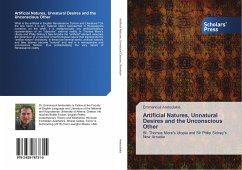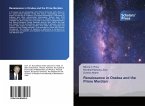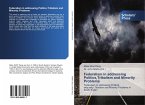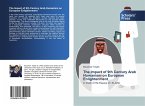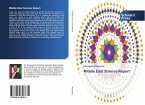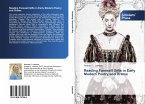What is the artificial in English Renaissance Culture and Literature? On the one hand, it is any material object represented in Renaissance narrative; on the other, it is metaphorically any artificial/fictitious representation of an "objective" external reality. In Thomas More's Utopia and Philip Sidney's New Arcadia the "artificial" element assumes the dimension of a new kind of technological nature that transcends the "artifice-nature" dichotomy. In these two seminal works, artificial natures and fake desires become "natural" and real in a retrospective and unconscious fashion, thus problematizing the very nature of Renaissance reality.
Hinweis: Dieser Artikel kann nur an eine deutsche Lieferadresse ausgeliefert werden.
Hinweis: Dieser Artikel kann nur an eine deutsche Lieferadresse ausgeliefert werden.

